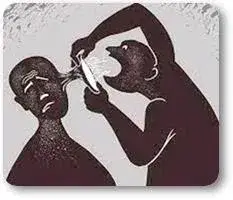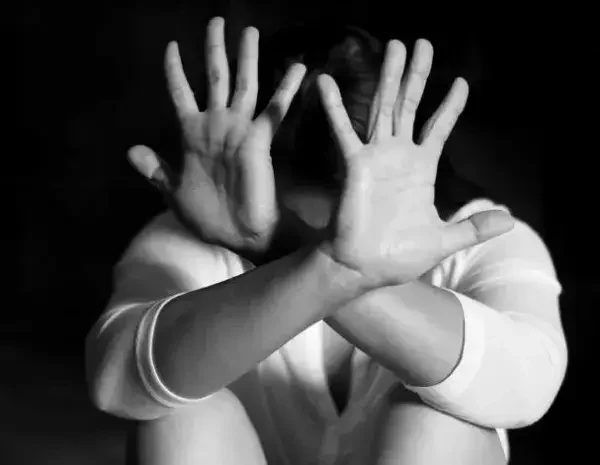Emotional Abuse. At first glance, what could emotional abuse and an unexpected, impulsive purchase have in common? Seemingly nothing. Yet both are expressions of fleeting emotions a moment of inner turmoil or desire taking the reins.
Let’s be clear: physical violence is never acceptable in any relationship. But there’s a more insidious form of abuse, emotional abuse. It’s often overlooked, not only by friends and family but even by the victims themselves.
Emotional Abuse, A Hidden Form of Control.
Unlike physical or sexual abuse, emotional abuse is subtle and refined. It’s a manipulative tool that gives the abuser near-total control over the relationship.
It can take many forms—from seemingly harmless remarks to overt insults and public humiliation. Psychologists note that victims often fail to recognize emotional abuse, especially early on.
Abusers frequently appear as caring “uncles” or concerned “aunts”—attentive friends who gain trust and slowly increase the victim’s vulnerability.
Those who endure emotional abuse over time often face lasting consequences: anxiety, depression, chronic emotional pain, and even substance abuse.
Recognizing Emotional Abuse.
There are telltale signs that you’re in the presence of an emotional abuser, signs that often accompany toxic relationships.
You find yourself constantly trying to please your partner, choosing your words carefully to avoid conflict. You’ve accepted a secondary role in the relationship.
You’re self-regulating your behavior to prevent outright verbal attacks. Your partner manipulates your perception of reality.
They say things like, “You’re making it up, that didn’t happen,” or “I never said or did that.” Over time, this gaslighting causes self-doubt, and you begin to believe their distorted version of events, leaving you even more susceptible to manipulation.
Your partner demands to know where you are, when, and with whom. What starts as frequent check-ins becomes a form of surveillance. Demanding constant updates about your whereabouts or trying to restrict your social life is a hallmark of emotional abuse.
They insult you, only to dismiss it as a joke.
When you object, they say, “Don’t be so sensitive- it was just a joke.” But every sarcastic jab carries a grain of truth. Eventually, you find yourself apologizing for things you didn’t even do.
Victims of emotional abuse often internalize the blame, believing they’re stupid or selfish, because that’s the narrative they’re constantly fed.
At times, your partner showers you with affection, only to suddenly go cold. You’re left confused and desperate to regain their approval.
They withhold communication, and in the silence, you begin to panic, blaming yourself for something you don’t even understand.
They undermine your strengths and belittle your achievements. At first, it may seem like an occasional slip of the tongue, but these comments are strategic, targeted at the very traits your partner sees as threatening.
Do they ignore your accomplishments?
Change the subject when you speak proudly of your work? Over time, this erodes your self-esteem and sense of competence.
They set emotional limits. Relationships based on conditional love or financial withholding are deeply problematic. Abuse isn’t always physical, limiting what someone deserves or is entitled to is also a form of harm.
You no longer feel sexually desirable. This is especially common among women. A sense of safety and emotional connection is essential for physical intimacy.
If a woman feels fear or resentment, her body will not respond to her partner. You feel sorry for your partner, even when they hurt you. Emotional abusers are masters of manipulation.
They hurt you, then convince you it’s your fault. You end up feeling sorry for them—because they appear pitiful, abandoned, or lost.
Emotional Abuse and “Surprise” Plans.
Obvious attempts to control someone are easy to recognize. But there’s another, more covert tactic—hidden control. One common method is the sudden disruption of plans under the guise of a “surprise.”
What begins as flattering spontaneity turns into a pattern, where your needs are sidelined and control is exerted without direct demands.
You start thinking, “They must know best,” or “Maybe I’m overreacting.” And that’s exactly how control quietly takes hold.
Now, you might wonder, am I at risk of emotional abuse from a partner, friend, or family member?
The mere fact you’re asking that question is a sign of awareness. And awareness is power. But there’s another kind of emotional impulse, the emotional purchase.
Emotional Purchases, When the Heart Takes Over the Wallet.
Not all purchases are logical. In fact, studies show a staggering 95% of buying decisions are driven by emotions, not reason.
People buy based on how something makes them feel—then justify it later with logic. While residents of Latvia may pride themselves on rational shopping choices, no one is entirely immune.
Let’s look at two striking examples:
Case One, A Barely Visible Banksy. A modest Bristol home unexpectedly skyrocketed in value.
Why?
One of its outer walls features a faded graffiti piece by none other than Banksy. Originally covered with a painting of magnolias—because the original image of a monkey frightened the homeowner’s children.
The overpainting has since peeled, revealing fragments of Banksy’s early work Slick on Brick.
You can hardly see the artwork. And yet, the house, once ordinary, is now worth over a million euros. A hidden image, barely visible, transformed the property’s worth.
If that isn’t an emotional purchase, what is?
Case Two: A Broken Van, a Rockstar’s Touch. In an eBay auction, a decrepit 1972 Dodge van was listed for $43,300. At first glance, it looked fit for a scrapyard.
But on its side, it featured a hand-drawn image by Kurt Cobain yes, the Kurt Cobain of Nirvana, done when the van was used by his friends in the band Melvins.

The marker he used was stolen from a local shop, and the sketch came in a flood of feelings. Despite the van’s terrible condition, the emotional and cultural value far outweighed the practical. Another clear case of an emotional purchase.
In the End…
Whether it’s a relationship or a transaction, emotions run deep. They shape our connections, control our decisions, and sometimes mislead us leaving invisible scars or hidden treasures behind.
Stay alert, stay aware, and above all, stay in tune with your own feelings.
Have a great day!




